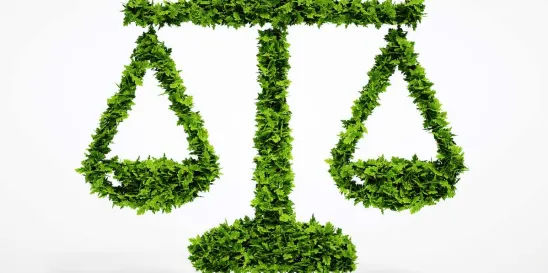On October 15, 2023, the Department of Justice (“DOJ”) issued its first-ever Comprehensive Environmental Justice Enforcement Strategy Annual Report ("Report”) detailing DOJ’s progress in advancing environmental justice under its Comprehensive Environmental Justice Enforcement Strategy (“EJ Strategy”), and through the operation of its new Office of Environmental Justice. The Report highlights DOJ cases involving environmental justice issues and inequities, including several enforcement cases that span across various industries and geographical areas. The Report demonstrates how DOJ’s environmental justice initiatives are fueling enforcement cases and should be considered by companies in their evaluation of compliance programs, particularly in industries and geographic areas where non-compliance may affect communities of color, indigenous, low-income, and other historically disadvantaged communities.
Background
The Report follows DOJ’s May 2022 creation of the Office of Environmental Justice and issuance of its EJ Strategy. The Office of Environmental Justice supports DOJ in environmental justice investigations and litigation, as well as outreach to communities with environmental justice concerns. In May, DOJ also issued its EJ Strategy, which seeks to provide “timely remedies for systemic environmental violations and contaminations, and injury to natural resources” through the enforcement of federal laws. For more information on these May 2022 DOJ environmental justice announcements, please see our previous alert.
The Report
The Report details DOJ’s progress in implementing its EJ Strategy. Specifically, the Report outlines several cases that sought to protect communities most overburdened by environmental harm. Several of these key cases are highlighted below.
Civil Division
The DOJ’s Civil Division worked to ensure that a natural gas transporter and an oil and gas lessee fulfilled decommissioning obligations to clean-up or prevent further environmental damage. In a separate case, DOJ filed a civil lawsuit to prevent a local irrigation district from diverting water from a river without approval by the Bureau of Reclamation, and potentially harming downstream Tribal reserved water rights held for fisheries purposes.
Civil Rights
The Report also outlines two significant cases pursued by DOJ’s Civil Rights Division. In the first case, DOJ announced an interim resolution agreement that concluded its first-ever Civil Rights Act of 1964 Title VI environmental justice investigation into racial discrimination in the operation of a wastewater disposal program. The second case resolved an environmental justice investigation into a city’s response to illegal dumping in Black and Latino neighborhoods.
Environmental Enforcement
The Report summarizes several significant environmental enforcement cases brought both by DOJ’s Environment and Natural Resources Division and individual U.S. Attorney’s offices that have addressed, at least in part, environmental justice issues. Those cases included Clean Air Act cases against natural gas facilities, a refinery, and a heavy-duty diesel engine service company, as well as a Clean Water Act case against a wastewater treatment facility. Another significant case resolved Safe Drinking Water Act charges against a municipal drinking water system. In the Report, DOJ identifies how the enforcement action relates to disproportionately impacted communities.
Tribal Environmental Justice
The Report notes that environmental justice concerns in Tribal communities are unique, and it is necessary to consider the sovereignty of federally recognized Indian Tribes and Alaska Native Villages. In addition to environmental and public health issues, Tribes’ environmental justice concerns may also include damage or potential injury to cultural and sacred sites and resources, depletion of fisheries or harm to traditional hunting and gathering areas, impairment of treaty rights, and degradation of water and land resources on or needed to support Tribal homelands or associated rights.
The Report summarizes efforts of federal agencies to collaborate with Tribal government representatives and to conduct Tribal outreach sessions. The outreach focused on climate adaptation measures, Tribal water rights, and Tribal treaty rights associated with the safeguarding of natural resources. The DOJ’s Office of Tribal Justice also designated a formal Tribal Liaison to the Office of Environmental Justice, which will help facilitate the government-to-government relationship between the federal government and Tribes regarding matters of environmental justice.
Implications
The Report demonstrates DOJ’s continued commitment to implementing its EJ Strategy by prioritizing enforcement actions that potentially benefit environmental justice communities. Aligned with this effort are also the Environmental Protection Agency’s recently released National Enforcement and Compliance Initiatives, which incorporate environmental justice as a significant facet especially with regard to the priorities concerning coal ash and air toxics, as outlined in a prior alert here. These robust enforcement efforts highlight the importance of compliance with environmental laws and regulations.
Now, more than ever, it is critical that companies prioritize environmental compliance and promptly undertake internal investigations into any potential non-compliant conduct—particularly when that conduct may negatively impact an environmental justice community. Prompt investigation and remediation of potential environmental violations can position companies to reduce the scope of fines and injunctive relief in a DOJ enforcement action.





 />i
/>i

